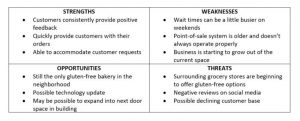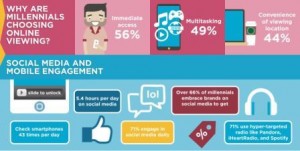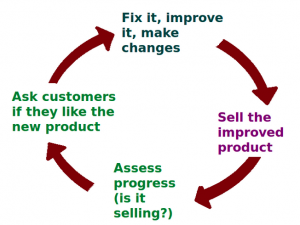Did my colleague Brenna enjoy the conference? I should send a chat message to ask her now.
I was just out of town last weekend but maybe I should hit the road this Friday, too. I’m going to search for last-minute deals.
I just overheard a colleague mention an issue with a project where I might be able to help. I’ll walk over to offer my suggestions.
Sound familiar? None of these thoughts or actions is wrong in and of itself. But if your entire day is filled with this type of self-generated busyness, there’s a problem.
Self-generated busyness can crowd out the important things we need to do in our personal and professional lives. Allowing yourself to be “too busy” can keep you from actually getting things done. As a time management coach, I have found that the only way to get where you want to in life is to stop the self-created swirl of unnecessary tasks.
Letting go of distraction can feel difficult at first because it requires courage and determination. But ultimately, it’s the one of the most satisfying and constructive things you can do for your personal life and for your career. Here are five busyness barriers that can hold you back from being productive and how to overcome them.
Keeping up with everything
Today it’s possible to distract yourself 24/7 with a flow of information that never stops and never ends. There’s always more social media, news, movies, and TV to consume.
At work, this could look like incessantly checking LinkedIn, congratulating everyone in your network of thousands on their work anniversaries, or reading every article that pops up related to your industry. Outside of work, this could look like binging social media, news, and Netflix facilitated by an infinite stream of input.
Relaxing with screens isn’t an issue for most people. But if these activities consume hours every day, it’s very likely that you’re generating unnecessary busyness.
Consider deciding which social media or news sources are most meaningful to you. For example, I’m not on Instagram, but I am on LinkedIn. And then decide how much of your time these platforms deserve. Set a limit on your media consumption depending on your true needs. This can range from checking certain apps for 30 minutes a day to potentially only checking them once a week.
In my experience, I’ve found less tends to be a lot more. When you set limits, remind yourself that it is impossible to keep up with the onslaught of information and you deserve to prioritize what is truly important.
Thinking of new ideas—and never seeing them through
Innovation is a good thing. But if every time you sit down to work on a current project, your mind suddenly flits to something else that you could dream up and you follow your fancy, there’s a problem.
Coming up with an idea is typically only a small part of the productivity equation. Seeing things through to the end is what generates results.
For example, in your professional life, maybe you’re halfway through implementing a new CRM system. Or in your personal life, you’re a third of the way through reorganizing your closet. In those situations, you may need to brainstorm less, and execute more.
At work, that could mean implementing the new CRM system that you’re already working on—not starting to do internet searches for an entirely new tool and starting from scratch. And at home, that could mean getting the proper shelving in place and getting your clothes off the floor instead of beginning to scroll through Instagram for bathroom pedestal sink ideas.
When you notice the temptation to avoid the already started for the not yet begun, give yourself permission to write down the idea for future reference and then redirect your attention to the task at hand. If that’s exceptionally hard for you, you may even want to consider app or website blockers such as freedom.to, which you can turn on to keep you focused on the project at hand instead of running down other rabbit holes.
Non-stop socializing
Meaningful relationships play a huge role in our overall happiness and wellbeing. So I’m absolutely not suggesting that you become a hermit so that you can simply get more things done all the time. But all of us must find a balance between spending time with others and having the time and space to get things done.
That trade-off can look different for each individual depending on their introversion or extroversion needs and the roles they play. One sign that you might have an unhealthy balance could be that you’re completely caught up on what’s going on in all of your coworkers’ families’ lives but you can never end work in time to catch up with your own family. Or that you’re busy with friends, meetings, and events so often that there’s never time to put your home in order or to keep up with essential tasks like grocery shopping or paying bills.
If you think you might be chatting with your coworkers to procrastinate on your work, try to limit the amount of time you spend on personal catchups at the beginning or end of meetings, refrain from messaging a colleague every time you think of something random to ask or share, and consider doing a walk around the office to talk to people as a reward once you’ve gotten an important task done.
Outside of work, I strongly recommend that you reserve at least one evening during the work week for getting personal tasks done. I also recommend doing the same for at least half a day on the weekend. If you’re running from activity to activity, it can be challenging to find a large enough window to get anything off your to-do list.
Excessive travel
Similar to socializing, travel can be a huge boost to your overall happiness, whether it’s having something exciting to look forward to, visiting people who you care about, or simply getting the opportunity to relax. And professionally, trips can expand your network, help you learn, and give you an edge in your career.
But done in excess, travel can keep you from living your most satisfying and fulfilling life, because you’re escaping what’s most important. This happens in part because travel doesn’t just mean time away from the office or home. It also requires time in advance to prep and sometimes can also require recovery time.
For all travel, consider how much you want to do each quarter or each month, then pace yourself accordingly. Some careers may require you to hit the road every week, but in many situations traveling once a month or less is a better balance. And even if you typically are a road warrior, I would question whether there are more meetings you could effectively do remotely.
Outside of work, there may be seasons where due to weddings, graduations, or other special events, you need to book back-to-back travel. But if you can leave yourself breathing room where you have at least every other weekend at home to organize, catch up on finances, or simply refresh and recharge, you may find that you are happier and more balanced.
It’s important to ask yourself if you’re traveling because this particular trip is really a priority or because you’re keeping yourself busy and avoiding important things in your personal life.
Taking on too many responsibilities
Another way you can open up hours of your time is to not take responsibility for issues that aren’t specifically yours. Just because something is an issue doesn’t mean that you have to solve it alone.
That could mean not jumping in when a colleague mentions something that needs to get resolved but that isn’t really within the scope of your role. It could mean not trying to solve a friend’s problem when they’re not really in a place to take ownership of the issue themselves. It could mean not volunteering to help with an initiative that is of interest to you but would preclude you from finishing the tasks that you really need to do.
Does this mean you’re never helpful, never volunteer, or never lend a listening ear? No.

But it does mean that you don’t go out of your way to entangle yourself in solving problems for other people when you don’t have enough time to keep up on your own life. Of course, there may be times in your life when you are truly busy. But there may also be times when you are self-generating a lack of time by adding in things to your life that you don’t actually need to do.
If you find yourself in the latter category, use the above tips to overcome your busyness barriers and to get the most important things in your life done.
(7)
Report Post





